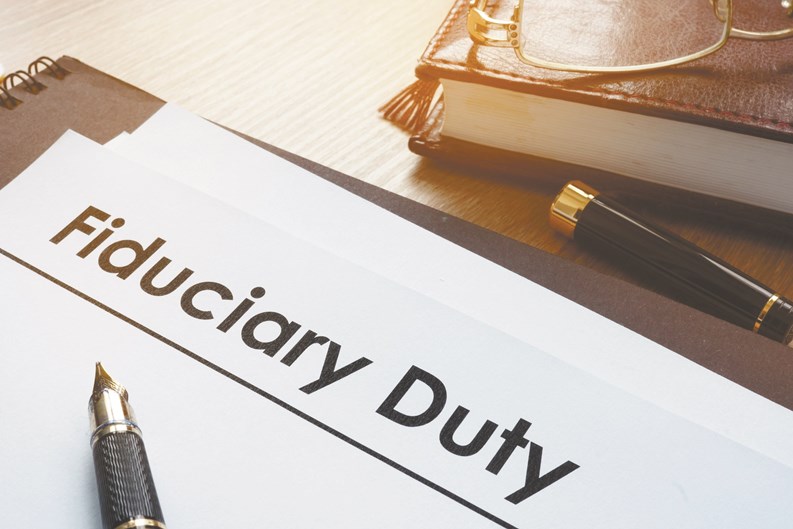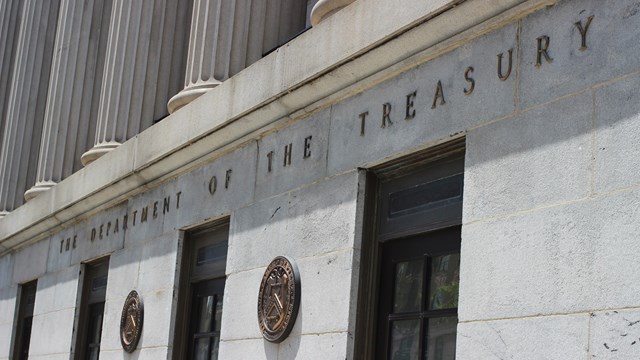The board of a condominium, cooperative or homeowners’ association has a fiduciary duty to make decisions in the best interest of the community as a whole. But individual board members may have different ideas as to what those decisions might be, and some may even have joined the board more for self-serving reasons than as a way to serve their community. Fortunately, every community has governing documents – supported by state and local laws – that specifically address what’s expected and required of its board.
While laws obviously vary between cities and states – and of course each multifamily community is different – there are general obligations that a board must uphold on behalf of its constituents, usually pertaining to things like annual meetings, elections, special assessments, referendums, and contracts. It behooves both board and residents to be aware of the various limitations under which the board is placed in order to guarantee maximum accountability.
Fiduciary Duty
Fiduciary duty is the distilled essence of board obligation, which a board can use as a kind of litmus test when facing any decision. ‘Does this decision benefit the collective more than any individual board member, owner, or shareholder?’ is a great question to ask routinely. And should the answer be anything other than a definitive ‘yes,’ some more thought needs to be put into the course of action in question.
“I think that at the most basic level, the duties that the board owes the unit owners and members comes down to that fiduciary duty,” says Jennifer Horan, a senior attorney with the law firm of Becker & Poliakoff in Naples, Florida. “The officers and the directors have to keep the interests of the association above their own. They’re a representative body responsible for administering the association in good faith. They have a duty to abide by any requirements set forth in their governing documents.”
State and city regulations can put a finer point on what a board is required to provide to their community’s residents. In New York, for example, co-ops are mainly governed by the Business Corporation Law (BCL). “My firm represents over 30 cooperative corporations throughout the boroughs of New York City, and in my experience, the majority of them them are formed under the BCL,” notes Stephen Chiaino, a real estate attorney with Abrams, Fensterman, Fensterman, Eisman, Formato, Ferrara, Wolf & Carone, LLP. “Therefore, the BCL should be referred to as a starting point when considering these issues. BCL § 717 (a) states, in relevant part, that ‘[A] director shall perform his duties as a director, including his duties as a member of any committee of the board upon which he may serve, in good faith and with that degree of care which an ordinarily prudent person in a like position would use under similar circumstances.’ Consequently, each decision made by a director must be made in accordance with that standard.”
It’s also worth noting that the board does not specifically owe anything to the unit owners on an individual basis, according to Thomas O. Moriarty, a partner at the law firm of Moriarty Troyer & Malloy in Braintree, Massachusetts. “While unit owners often believe that the board, or board members, owe them a fiduciary duty, this is not technically the case. As regards board conduct, the only fiduciary duty that exists is that owed by the individual board members to the organization of unit owners (i.e., the corporation, trust, or association created to control and manage the condominium). The board and its members do not owe a fiduciary duty to the individual unit owners. That being said, the unit owners are entitled to – and can demand that – the board comply with certain requirements imposed by the governing documents.”
Meeting Mandates
Of course, transparency is a huge component of running an ethical board and a functional association. Thus, a board cannot perform its duties with adequate transparency if it’s not holding regular meetings with residents. The whens and the how-oftens of meetings are determined on an individual association basis in accordance with a given community’s governing documents. According to the pros, if a board consistently fails to hold meetings or let residents know in a timely fashion when a meeting is to be held, that’s a red flag that suggests negligence at best or nefarious goings-on at worst.
“The board has a duty to comply with the meeting and election requirements in their governing documents,” says Moriarty. “Therefore, a unit owner has the right to demand that the board conduct the meetings called for in the trust or the bylaws, and follow the election procedures set forth therein.
“Of course,” Moriarty continues, “the mere fact that the board is obligated to call a meeting and conduct an election does not mean that it will do so. In the event a board fails to voluntarily call an annual meeting, unit owners have several options: an owner can start by requesting that the board call the meeting, as it is possible that the board is unfamiliar with its obligations, in which case a friendly reminder may address the concern. In the event that this does not achieve the desired result, it is likely that the documents allow the unit owners to call for a special meeting by majority vote. However, it might be up to the board to actually call that meeting and – assuming that the board has already been unwilling to call the annual meeting – it could hit a dead end. The unit owners might then choose to file a lawsuit compelling the board to conduct the meeting. If that avenue is pursued, the documents may require the owners to pursue alternative dispute mechanisms like mediation or arbitration.”
In Illinois, an association board must meet at least four times each year, according to Michael Delrahim, a partner with Chicago-based law firm Brown, Udell, Pomerantz & Delrahim, LTD. “Notice of every board meeting must be posted in entryways, elevators or other conspicuous places in the condominium at least 48 hours prior to a meeting,” he explains. “If there is no common entryway for seven or more units, the board may designate alternate locations. Any unit owner may record a board meeting by tape, film or other means. The board may adopt reasonable rules to govern the making of such recordings.
“A membership meeting must be held at least once per year,” Delrahim continues. “Written notice must be mailed or delivered to all unit owners, giving no less than 10 days and no more than 30 days’ notice of the time, place, and purpose of the meeting. Special meetings of the members can be called by the president, the board, or by 20 percent of the unit owners.”
Get Out the Vote
A board clearly cannot govern democratically if it is not holding regular fair elections, which are in and of themselves beholden to specific rules and protocols.
“The governing documents will likely provide that elections should take place during a meeting of unit owners,” explains Moriarty. “If no meeting of owners takes place, there may be no opportunity for an election. Additionally, even if there is a meeting, if there isn’t a quorum as required by the documents (i.e., not enough owners are present at the meeting in person or by proxy), an election cannot take place. In those instances, a vacancy may be deemed to exist which can be filled by the then-existing board. However, where a board fails to schedule a meeting and fails to conduct an election, it will be extremely difficult for the board to justify appointing members to the board. Unfortunately, should board members try to do so, the only available remedy will be to resort to the courts, or alternative dispute procedures as required by the governing documents.”
In New York, the BCL provides recourse should timely elections not be held. “If elections are not conducted within a specified period of time, BCL § 603 gives shareholders the power to demand the call of a special meeting for the purpose of electing a new board,” says Chiaino.
According to Chiaino, this section of the law states that “...if, for a period of one month after the date fixed by or under the bylaws for the annual meeting of shareholders, or if no date has been so fixed, for a period of 13 months after the formation of the corporation or the last annual meeting, there is a failure to elect a sufficient number of directors to conduct the business of the corporation, the board shall call a special meeting for the election of directors. If such special meeting is not called by the board within two weeks after the expiration of such period or if it is so called but there is a failure to elect such directors for a period of two months after the expiration of such period, holders of 10 percent of the votes of the shares entitled to vote in an election of directors may, in writing, demand the call of a special meeting for the election of directors specifying the date and month thereof, which shall not be less than sixty nor more than ninety days from the date of such written demand. The secretary of the corporation upon receiving the written demand shall promptly give notice of such meeting, or if he fails to do so within five business days thereafter, any shareholder signing such demand may give such notice. The meeting shall be held at the place fixed in the by-laws or, if not so fixed, at the office of the corporation.”
Docs and Info
Boards are also required to provide their residents with specific documents, figures, and information about their building or association, should it be requested.
According to Delrahim, as per the Illinois Condo Act: “Any member of an association has the right to inspect, examine and make copies of the association’s declaration, bylaws, and plats of survey and all amendments to these documents; the association’s rules and regulations, if any; the association’s articles of incorporation and all amendments to the articles [where relevant]; minutes of all board meetings for the immediately preceding seven years; and all current policies of insurance of the association.”
“In order to exercise this right,” Delrahim continues, “an association member must submit a written request to the board or its authorized agent, starting ‘with particularity’ the records being requested. Association members also have the right to inspect, examine, and make copies of another subset of documents – [including] all contracts, leases and other agreements then in effect to which the association is a party, or under which the association or the unit owners have obligations or liabilities; a current listing of the names, addresses and weighted vote of all members entitled to vote; ballots and proxies related to ballots for all matters and voted on by members of the association during the immediately preceding 12 months, including but not limited to the election of members to the board; the books and records of account for the association’s current and 10 immediately preceding fiscal years, including but not limited to itemized and detailed records of all receipts and expenditures.” But when it comes to accessing that second class of documents, Delrahim says that “the member must not only identify the records ‘with particularity,’ but also state ‘a proper purpose’ for requesting them. An association must generally provide any of this within 30 business days. ”
All of that said, it doesn’t much matter what information or documentation an owner or shareholder is entitled to access if that resident is not actively paying attention to his or her rights and the day-to-day management of the community.
“I’ve heard on more than one occasion ‘I didn’t know that item existed!’ or ‘I didn’t know that was in the documents!’” recalls Horan. “I recently went to a town hall meeting for a condo that had been around for 40 or 50 years to discuss proposed revisions to the governing documents. The ownership was up in arms about a provision stating that in order to lease your unit, you had to provide a copy of the leasing document to the board. It didn’t even require that you get board approval; you simply had to supply a copy. But they clamored on about privacy, lambasting the board for a few minutes, until I asked them to look at a section of their original documents, where that rule already existed, and always had. Maybe nobody had followed it, but it was there.”
Regardless of whether you currently serve on your board, are contemplating serving, or have no desire or inclination to serve – the pros agree that it’s vital for anyone living in a co-op, condo or HOA to have at least a working knowledge of what their board is responsible for, and what they have a right to know as a resident in good standing. In the end, it’s simply a matter of being a responsible homeowner.
Mike Odenthal is a staff writer/reporter for The South Florida Cooperator.







4 Comments
Leave a Comment